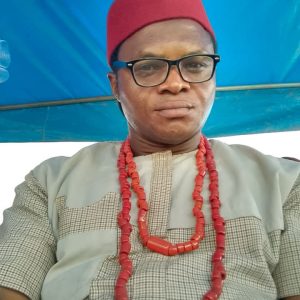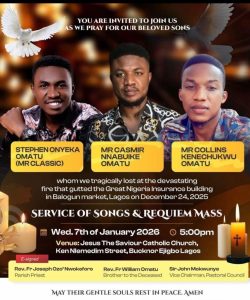THE AMBIVALENCE OF A CAPTURED COURT
BY JOHNPAUL AKIYA
Neither law nor justice could be found in Nigerian courts anymore. The world already knows that. For as long as I remember, Nigeria’s justice system has been weak; now it seems dead. Nobody needs a Justice Dattijo Muhammad to confirm that the judiciary has become something else.
When the president of the Court of Appeal, Justice Monica Dongban Mensem, moved all election appeal cases to Abuja (for northern states) and Lagos (for southern states), apparently in a bid to reduce the influence of state governors, I thought she meant well. For, indeed, state funds had been used to procure the judgements of several election petition tribunals. Those who sat in Enugu and Kano, for instance, didn’t sound like people who ever attended a law class or a law school.
With the judgements coming out of the appeal courts, however, we’ve seen that the rot is deeper than we thought. There’s no other way to explain the contradictory judgements delivered by the same appeal court except to assume it’s all a matter of cash-and-carry.
The ambivalence of this appeal court is glaring when you read the judgements regarding the governorship election cases in Lagos, Enugu, Kano and Plateau states. In Lagos — and in several judgements of the Supreme Court in recent years — we heard that the candidate of one party cannot challenge the eligibility or otherwise of a candidate of another party. It’s the internal affair of a party, and such litigant is a “meddlesome interloper”, we’re told. But the appeal court has given a diametrically opposed judgement in the cases of Kano and Plateau.
The case of Enugu State is even more intriguing. While in its notorious judgement of September 6, the presidential election tribunal (appeal court) stated plainly that the statement of a subpoenaed witness is admissible, the appeal court upheld the Enugu tribunal judgement that disregarded the testimony of the NYSC regarding PDP candidate Peter Mbah’s NYSC discharge certificate. Over-voting and non-use of BVAS, according to the Kudirat Akano judgement, are no electoral offences, nor is presentation of a forged certificate to INEC!
At the appeal court in Lagos, during the adoption of papers by the counsel of all parties in the Enugu governorship case, it was evident that the law was not applied by the tribunal. The appeal court was expected to reverse that injustice done to the Labour Party and its candidate, Hon. Chijioke Edeoga. A day or two after the hearing, however, Enugu government officials, who had worn mournful looks in court, were seen celebrating the successful capture of the appeal court. And, truly, a judgement date was announced the next day. Even the judge that delivered the judgement betrayed the fact that she was not conversant with the words she was reading. Apparently, the judgement the three-person appeal panel had written had to be replaced with another. It was alleged that the panelists were “ordered” by a superior to give the judgement in favour of the PDP candidate.
Nigeria’s brand of democracy is dying in instalments. Facing a legitimacy crisis, the APC government at the centre is bent on whipping every other party into line. That informs the desperation to capture Kano, Enugu and Plateau states. The illegitimate Enugu governor, Mbah, is said to have agreed with the cabal in Abuja that he would decamp to the APC soon after obtaining court victory.
With the appeal court judgements delivered so far, one could conclude that the appellate court is still Bulkachuwarised. After all, nothing has happened since Senator Bulkachuwa revealed, on the floor of the Senate in May this year, that he had influenced the judgements of the court formerly headed by his wife. Justice Mensem has not shown she’s different from Justice Bulkachuwa. In her home state Plateau, protests over the selective sack of PDP senators and now governor are raging. The protesters are pointing fingers at Mensem whom they accuse of working for politicians.
Judging by the Supreme Court’s judgement in the presidential election appeal, nothing good is expected from it. The constitution is no longer important, just as voters can no longer decide the winners of Nigerian polls. But we should just wait for the apex court to contradict itself once more. The litigants from Enugu, Kano, Lagos, Plateau and other states should kindly approach the Supreme Court. After its judgements, we shall see what the country will become.
*Akiya writes from Makurdi.





